Issue 13: Let’s Talk F1 & Africa from an International Development and Engineering Perspective
This week's issue explores the challenges and possibilities of bringing Formula 1 back to Africa and its potential impact on development across the continent.
It might surprise you that I’m an F1 fan, and you may be asking yourself, “What does Ella even know about F1, and why does she feel the need to write about it?”
Well, let me tell you, not only am I an F1 fan, I am a super fan. I hate to admit it, but I consume F1 content every single day of my life. My calendar is synced with every practice session, qualifying round, and Grand Prix. It’s that serious.
My obsession began early last year when I stumbled across a TikTok of a child screaming Charles Leclerc’s name at a Grand Prix, trying to get his attention as he made his way to the paddock. At that time, I only knew two drivers: Lewis Hamilton and Lando Norris. Oh, and now Charles Leclerc, thanks to that TikTok. I couldn’t help but wonder, why was that child so obsessed with this sport?
Later that year, I found myself at a pub in Geneva, Switzerland, with some of my IDHE classmates. One of them, a fellow F1 enthusiast, couldn’t stop talking about how hooked she was on Netflix’s reality series Drive to Survive. I remember thinking, “An F1 reality series? On Netflix? Definitely not my thing.”
Fast-forward to June, cue the classic Euro summer trip with my friend Ifeoma, and somehow, we ended up in Monte Carlo, Monaco. Yes, the iconic home of the MONACO GRAND PRIX and, of course, Charles Leclerc. My curiosity peaked, but at that point, my relationship with F1 was still just casual scrolling on TikTok.
Back in Toronto later that year, I was at a café with two of my friends, expressing how I really wanted to start watching F1 and follow the season properly. That’s when I turned to my friend Keiny, who just happens to be an aerospace engineer, and asked him to explain it all to me.
And, as the quick learner I am, it clicked instantly. I don’t know if it was the dramatic way he explained things or simply the fact that I had zero F1 knowledge at the time, but I was instantly intrigued. From then on, I spent the rest of the year devouring every F1 video I came across on social media. I eventually gave Drive to Survive a chance, and started following the remaining Grand Prix races of the season. Honesty, I owe my F1 addiction to Keiny.
Which brings us to now. For this week’s post, I sat down with Keiny to chat all things F1, specifically, what it would mean to bring an F1 circuit to Africa and how that could support international development. Let’s get into it.
F1 and Africa: A Conversation with Keiny
Myself and my friend Keiny, a junior aerospace engineer, F1 enthusiast ( and one of the smartest people I know) talked about where his love for Formula 1 began and how that passion actually influenced his decision to become an aerospace engineer. Naturally, our conversation dove into the history of F1 in Africa and what a potential return to the continent could look like.
Keiny shared that his original fascination was with aeroplanes, which is what pushed him toward aerospace engineering. But over time, he grew to love cars, particularly fast ones. And since F1 is the fastest motorsport in the world, it only made sense that his interests would blend. He was especially fascinated by how principles from aerospace carry over into race car design.
My first question for him was: What would make an African Grand Prix viable?
Keiny brought up the fact that Lewis Hamilton (the only Black driver on the grid) has been actively advocating for a race to return to Africa, but also says that the biggest challenge would be logistics. In case you didn’t know, F1 teams don’t have spare cars sitting at every circuit. Everything, cars, tools, equipment, has to be shipped in for each race. That means reliable cargo ports and solid infrastructure are essential. Thankfully, he mentioned that countries like Kenya and South Africa already have sizable ports and cargo planes that could support this.
The next hurdle? Track maintenance. It’s incredibly expensive to build and maintain an F1-level circuit, and it needs consistent investment, both local and foreign, to meet FIA standards.
When I asked what kind of impact an African Grand Prix could have, he explained that it would help reshape how the world sees Africa. Hosting such a high-profile event would showcase the continent's potential far beyond outdated narratives and stereotypical charity ads.
So, what infrastructure would be needed?
Keiny emphasized a few key elements: reliable roads (traffic can be a nightmare, just ask Las Vegas during their first F1 race), ample accommodation for visitors, and exciting tourist attractions to make the trip worthwhile. South Africa stands out in his opinion, not just because of its infrastructure, but also because it once hosted a Grand Prix before the apartheid-era shutdown.
What about funding? I wanted to know what role private investors and sponsors could play in making this happen.
Keiny believes it has to be a mix of both public and private funding. He referenced the Las Vegas Grand Prix, where surrounding businesses like casinos and hotels profited massively from the race weekend. In the same way, African countries could develop business hubs around a potential circuit, boosting the local economy while attracting investment. Governments could offer subsidies, while private investors benefit from tourism and visibility.
He also talked about Rwanda’s partnership with Arsenal Football Club and the Visit Rwanda campaign as an example of how sports can be part of a national development strategy.
Then, we got into the techy side of things.
Could hosting a Grand Prix drive innovation and skill-building in African engineering communities?
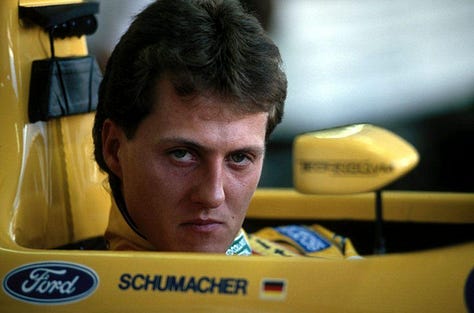
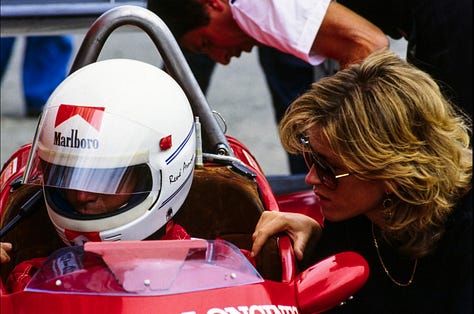
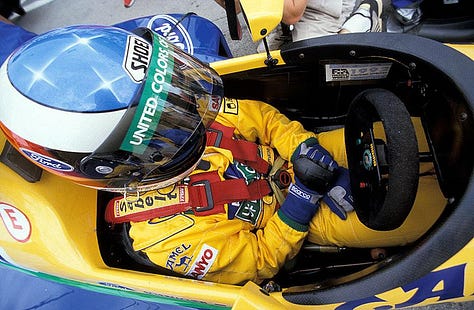
Keiny said one of the sad realities is that there are so many brilliant young people in Africa who don’t even know what F1 is, let alone how much engineering goes into it. Having a race on the continent could change that. He suggested that F1 teams could run tech showcases or youth programs, even inviting students to shadow their engineers or intern at their HQs. Imagine the spark that could ignite!
Looping back to last week’s issue, on the danger of a single story and the power of representation, I asked Keiny: How could an African Grand Prix shift global perceptions of the continent?
He answered beautifully, saying a race in Africa would tell a different story about the continent. One that shows its cities, infrastructure, culture, and people in a new light. Sure, most visitors would only see the touristy side, but every country has a curated tourist face. Still, it would help show that Africa is more than a crisis headline or a charity campaign.
So, do we think F1 is ready for a return to Africa?
Keiny admitted that F1’s recent expansions, like into the U.S. and Asia, were mostly profit-driven. From a business perspective, they likely didn’t see Africa as being as profitable. But that could change.
Finally, I asked: Could a Grand Prix inspire more young Africans to pursue STEM or motorsport engineering?
He said absolutely, but added that exposure is everything. If kids see this world up close, they’ll be inspired to imagine themselves in it. He suggested that African governments could even sponsor students to study motorsport engineering abroad, with the condition that they come back to apply their skills at home. The only catch? There currently aren’t many places in Africa where that knowledge can be put to use. That’s something that would have to grow alongside the sport.
Why Hasn't F1 Returned to Africa?
With all this talk about South Africa, why hasn’t F1 returned to Africa or even considered other countries on the continent? Well, in my conversation with Keiny, he highlighted that motorsports are actually quite present in Africa, there’s a Formula E circuit in Marrakech, and rally races in Kenya. From what I know, there's also growing traction in Rwanda, especially considering they host their annual award events there. That said, there are many factors at play. While I may not know much about sports, I do know a thing or two about political economy and development.
From a political and economic perspective, one of the main reasons, as Keiny and I discussed, is the instability and insecurity in several African countries. Many parts of Africa experience ongoing conflicts or government instability, which raise concerns about safety and the reputation of global events like F1. For instance, in eastern DRC, there has been renewed fighting between government forces and the M23 rebel group (allegedly backed by Rwanda), which has resulted in thousands of deaths and the displacement of over a million people since 2022. This kind of instability makes it difficult to secure the necessary guarantees for teams, spectators, and broadcasting partners.
Then, there’s the issue of infrastructure and financial barriers, which Keiny and I also touched on. Hosting an F1 race requires a circuit that meets FIA Grade 1 standards, as well as extensive transportation, hospitality infrastructure, and the ability to manage large-scale international events. Currently, only a handful of African circuits, notably Kyalami, are close to meeting these requirements (as discussed in the previous section), and they need significant upgrades. In terms of the financial burden, the annual hosting fee alone is around $40 million, not including the costs of infrastructure upgrades, event operations, and promotional activities. For many African governments, these costs compete with other urgent socio-economic priorities, making it hard to justify such an outlay without robust private investment or sponsorship.
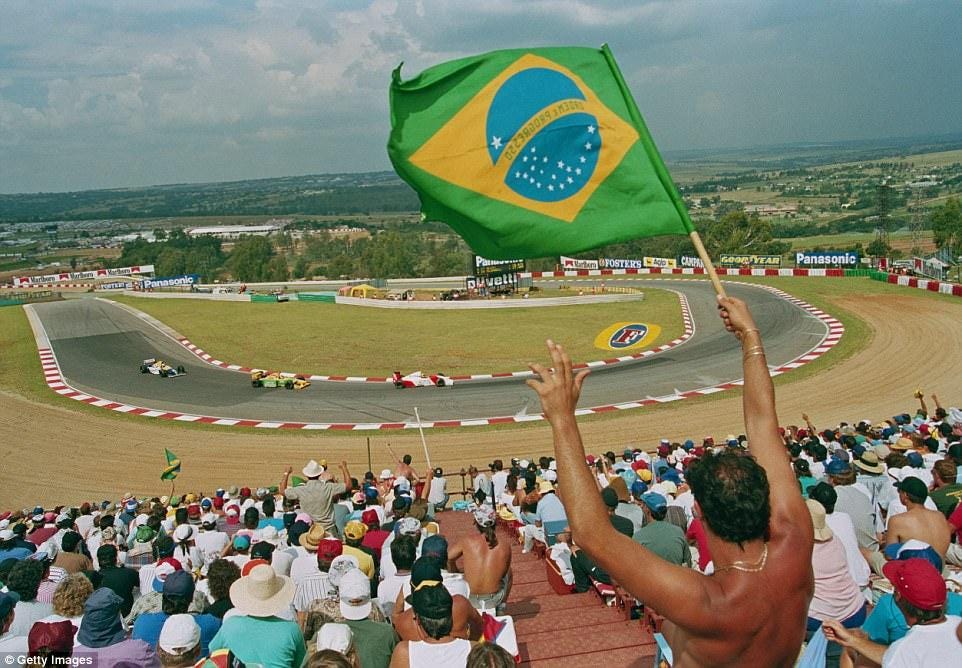
Additionally, there’s the issue of limited corporate sponsorship and investment. Compared to regions like the Middle East or Asia, Africa has fewer major corporations willing or able to underwrite the costs of hosting an F1 race. While there are growing efforts to attract sponsors, such as South Africa’s talks with Heineken and Red Bull, securing consistent, high-level investment remains a challenge.
Now, looking at Rwanda, which seems like a strong contender to host an F1 race: There have been rumors and official bids. Rwanda made a high-profile push to host a Grand Prix, supported by President Paul Kagame. They even hosted the FIA General Assembly and prize-giving ceremony in Kigali in 2024. The proposal included plans for a permanent circuit near the new Bugasera Airport, blending motorsports with sustainable tourism. There are also rumors of a significant partnership between Rwanda and the Alpine F1 team, reportedly worth 60 million euros over three years, aimed at promoting the country and boosting its profile in global motorsports.
However, the political climate presents serious obstacles. Despite Rwanda’s enthusiasm, the country is accused by the DRC, the UN, and Western governments of supporting the M23 rebel group, which has been involved in violent conflict in eastern Congo, leading to thousands of deaths and mass displacement since 2022. The DRC has publicly urged F1 to cease discussions with Rwanda, warning that associating with the country could damage F1’s reputation due to ongoing conflicts and allegations of human rights abuses. International scrutiny and diplomatic tensions make it unlikely that F1 would risk its brand by moving forward with a Rwandan Grand Prix under the current circumstances.
So, essentially, F1’s absence from Africa is the result of a combination of political instability, economic barriers, infrastructure deficits, and limited sponsorships. While both South Africa and Rwanda have made recent, high-profile bids to host a Grand Prix, persistent geopolitical challenges, especially in Rwanda’s case, continue to impede progress. Until these issues are resolved, a suitable return of F1 to Africa remains uncertain.
What an African Grand Prix Could Mean for Development
In an ideal world, if an African Grand Prix were to take place, it could have significant positive impacts on both the host country and the continent. Here are four key areas of potential:
Economic Growth: Hosting an F1 Grand Prix would boost tourism and hospitality, leading to higher hotel occupancy, increased restaurant spending, and thriving local attractions. For example, the 2017 Monaco Grand Prix generated €90 million over four days. F1 events also create thousands of jobs in hospitality, logistics, security, and transportation. The Las Vegas Grand Prix, for instance, created an estimated 10,000 jobs in its debut year.
Technological and Engineering Development: F1’s advanced technologies can inspire local innovation and investment in motorsports and STEM education. F1’s STEM Racing program engages students globally, sparking interest in engineering careers. Partnerships between F1 teams and universities like McLaren’s collaboration with KAUST in Saudi Arabia, foster research in aerodynamics and sustainable mobility. Local industries can benefit from technology spillovers in AI, data analytics, and engineering.
Global Recognition and Soft Power: An African Grand Prix would elevate the host city’s global profile, positioning it as a key sporting hub. Media coverage and F1’s prestige could attract investment, tourism, and major events. Partnerships with international corporations could support broader economic and infrastructure development.
Community and Cultural Impact: Local businesses, from food vendors to service providers, would benefit from the influx of visitors. Exposure to F1 could inspire African youth to pursue careers in motorsports, engineering, and technology through programs like STEM Racing. F1 events would also promote cultural exchange, with drivers and teams engaging with the local community and tourists learning about new cultures. However, careful planning would be required to ensure the benefits are inclusive and mitigate challenges like displacement or over-commercialisation.
Conclusion: A Dream Worth Pursuing?
In essence, an African Grand Prix could be more than just another F1 stop; it’s an opportunity to bring the sport to a continent rich in culture and untapped potential. For African fans, it would mean seeing their heroes up close and inspiring new generations. For F1, returning to Africa could signal a commitment to global inclusivity and growth.
Though challenges like political issues, infrastructure demands, and financial hurdles exist, they’re not insurmountable. Monaco and Las Vegas show that with thoughtful investment, community engagement, and strategic partnerships, an F1 event can transform into an economic, technological, and cultural triumph. Africa’s growing cities and youthful population might be ready to embrace the innovation, jobs, and international spotlight that F1 can bring, but there’s more at play.
Thank you for reading this week’s issue of Probably Eating a Croissant. Apologies for the delay, I spent a bit more time editing than usual! I appreciate all your support and engagement with my writing, and I look forward to seeing you next week.
(All images and image descriptions in this post were sourced from Scuderia Ferrari Club )






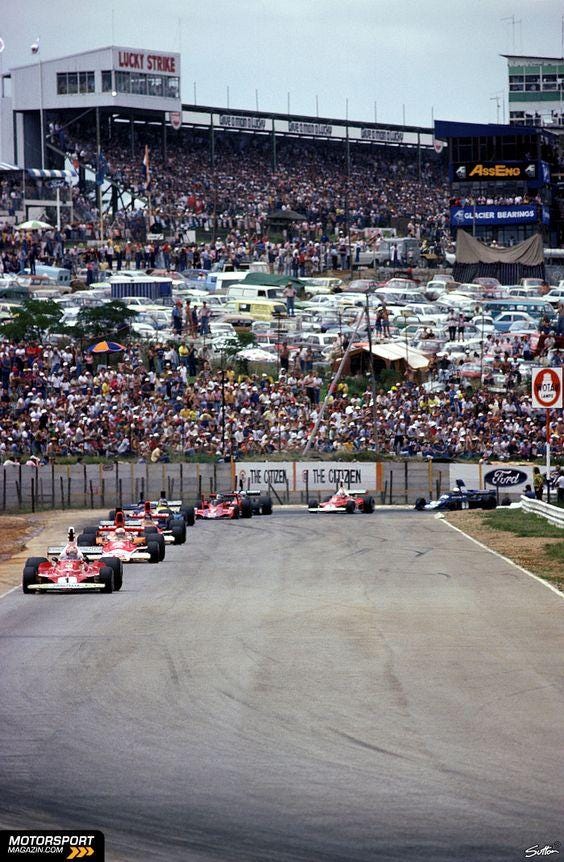

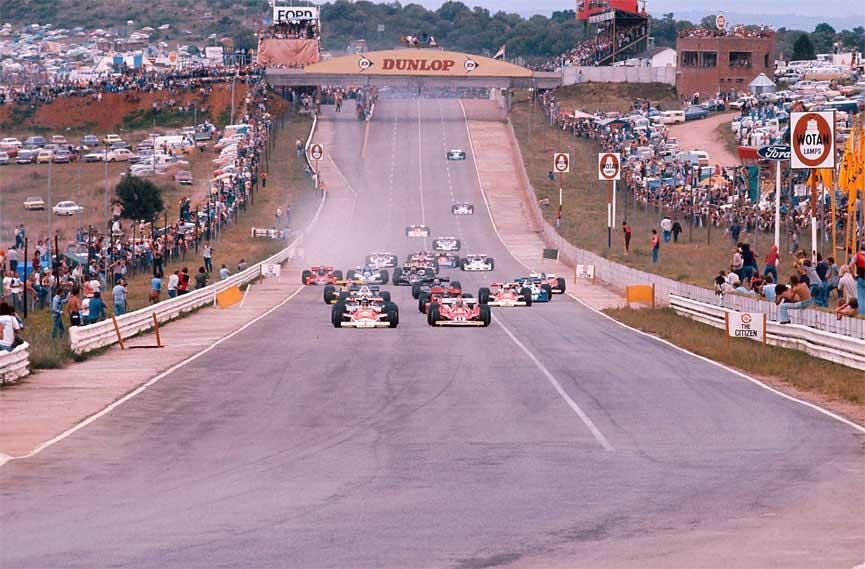

this was such an interesting and insightful read, i really enjoyed it being an F1 fan and a Nigerian! To answer the question you asked, honestly, if F1 ever comes back to Africa, Kyalami is still the most realistic option. It has the history and decent infrastructure, but politics and money have held it back so far. I also think there’s potential for Morocco’s too and they’ve shown they can organize a global motorsport event! As a Nigerian, I’d love to see races in places like Abuja or Ogun State someday. The economies are growing, and so is the fanbase, but because of the current state of governance in Nigeria, the infrastructure and funding isn’t quite there yet for a full F1 setup. Kyalami makes sense now, but long-term, i think F1 should be thinking and looking to tap into Africa’s real growth markets. Sorry this is so long, it’s a topic i think about a lot🤭
This was very interesting I did not know that F1 used to be hosted in South Africa. I personally think the hosting F1 in Nigeria would be very cool 😎 but it going back to South Africa would be the most obvious answer since it already has the infrastructure, it would just to upgraded.